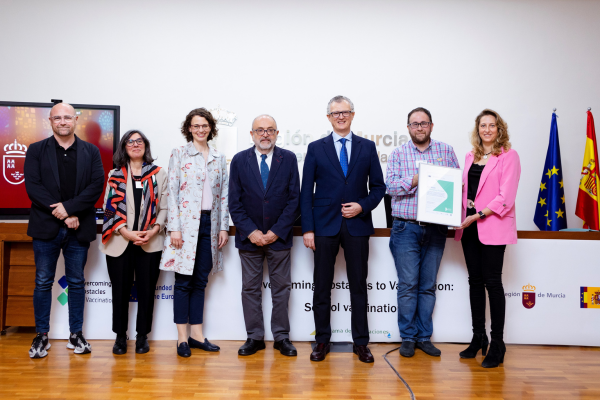Exemplary practice: Murcia School Vaccination Programme

Celebrating promising practices that increase access to vaccination
On the 01 June, the European Health and Digital Executive Agency (HaDEA) recognised the Directorate General for Public Health and Addictions of Murcia for its efforts in the implementation of the "School Vaccination Programme in Murcia Region."
The award of exemplary practice is part of the larger pan-European initiative, "Overcoming Obstacles to Vaccination", a 3-year project aimed at tackling obstacles of physical, practical, and administrative nature to vaccination. This initiative sets out to identify and assess the impact of obstacles to vaccination, share and pilot best practices and develop recommendations, in turn supporting EU Member States and increasing vaccination coverage rates.
Using criteria developed by the European Commission, health authorities from across Europe submitted interventions considered as promising practices to address obstacles to vaccination. Out of the numerous submissions, only five projects were selected, and "The School Vaccination Programme in Murcia Region" is one of them.
This project stands out for its effective approach in addressing low vaccination rates by relocating the vaccination process against HPV and meningococcus for adolescents (11-year-olds) from health centres to schools, thereby promoting accessibility and equity.
Agnes Mathieu-Mendes, Head of Unit, European Health and Digital Executive Agency, acknowledged the programmes achievement in:
- promoting citizen well-being, scientific and technological progress, and combatting social exclusion
- investigating and identifying barriers to vaccination
- developing innovative approaches to bring together central and municipal services.
The award was presented during the first project onsite visit where health authorities and practitioners attended a series of workshops, reflecting on practices observed and how such practices can be applied in their national contexts.
